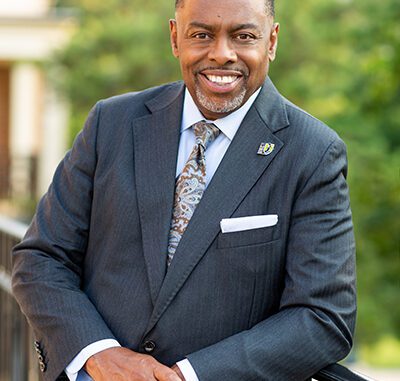
If you’ve seen the recent headlines about higher education, you’ve probably noticed that a lot of colleges seem to be in trouble.
The nation’s universities have lost one million undergraduates in just two years because of the pandemic, a robust job market and rising college prices. Worse, demographics won’t rescue higher education this time around. After two decades of steady growth, the population of high school graduates is projected to peak within the next several years before leveling off in North Carolina and falling most everyplace else.
These declines won’t hit all colleges and universities equally. Elite institutions such as Duke and UNC-Chapel Hill will have no trouble attracting students thanks to their high-profile, well-known brands, deep-pocketed donors and multi-billion-dollar endowments.
However, these demographic trends represent an existential crisis for the rest — small private colleges with few financial resources and public regional universities that serve a vast and diverse student population.
Regional public universities — like UNC Greensboro — are too important to ignore. They produce the teachers, nurses, accountants, computer scientists, lab techs, counselors and many others who are crucial contributors to the economy and society. In fact, UNCG provides more first-generation and lower-income students with paths to prosperity than any other public university in the state. We build the people that make North Carolina better for all.
Consider this: of UNCG’s 19,038 students, 92% are from North Carolina and represent almost all 100 counties. More than half of our students are racial and ethnic minorities. Among those, 13% are Latino, giving us the largest Latino student population of any of North Carolina’s 16 public universities. Nearly half — 49% — are the first members of their family to attend a four-year college. Moreover, 75% of our students receive financial aid, and 48% are eligible for Pell Grants because they come from homes of severely limited or moderate means.
This fall, 96% of our first-year students came from Tier 1 or Tier 2 counties — the most economically distressed regions of North Carolina. What’s even more impressive: 73% of our graduates return to those counties to live and work. We also serve large numbers of non-traditional students: Nearly 20% of our undergraduates are 25 or older, and many have jobs, families and children of their own.
The demographic changes that have been taking place across North Carolina for years are plainly evident on our campus. We saw these changes coming and built the right academic and advising programs to best support a student body that looks much different than it did a generation ago. As a result, not only have we increased graduation rates for all students, but we’ve also closed the achievement gap between white and minority students.
Here’s one more thing to remember: access to higher education doesn’t have to come at the expense of academic excellence. For the past 32 years, UNCG has been recognized by U.S. News and World Report as one of the “Best Colleges” in the nation. We prove that strong regional public universities play a vital role in providing a quality and affordable education that graduates students and helps them find good jobs. In this regard, UNCG continues its legacy of excellence building on the foundation of the historic Woman’s College.
The critical student support systems that make these outcomes happen are not inexpensive. Many of our students come from families where graduating from college isn’t a foregone conclusion. Many need tremendous amounts of academic and social counseling and financial assistance to stay on track to earn their degrees. It is here where the generosity of our donors makes the biggest impact.
Moreover, we need to prioritize continued investments in the support systems that help more of our state’s students transform untapped potential into prosperity, particularly (but not exclusive to) those from under-represented and lower-income groups.
Despite the gloom you might have heard around higher education, we’re getting the job done at UNCG — and we remain laser-focused on providing a more prosperous future for our graduates and for North Carolina. We hope that you will join us as regional universities like ours put thousands of North Carolina students on their “paths to prosperity.”
Dr. Franklin D. Gilliam Jr. is Chancellor of UNC Greensboro.



